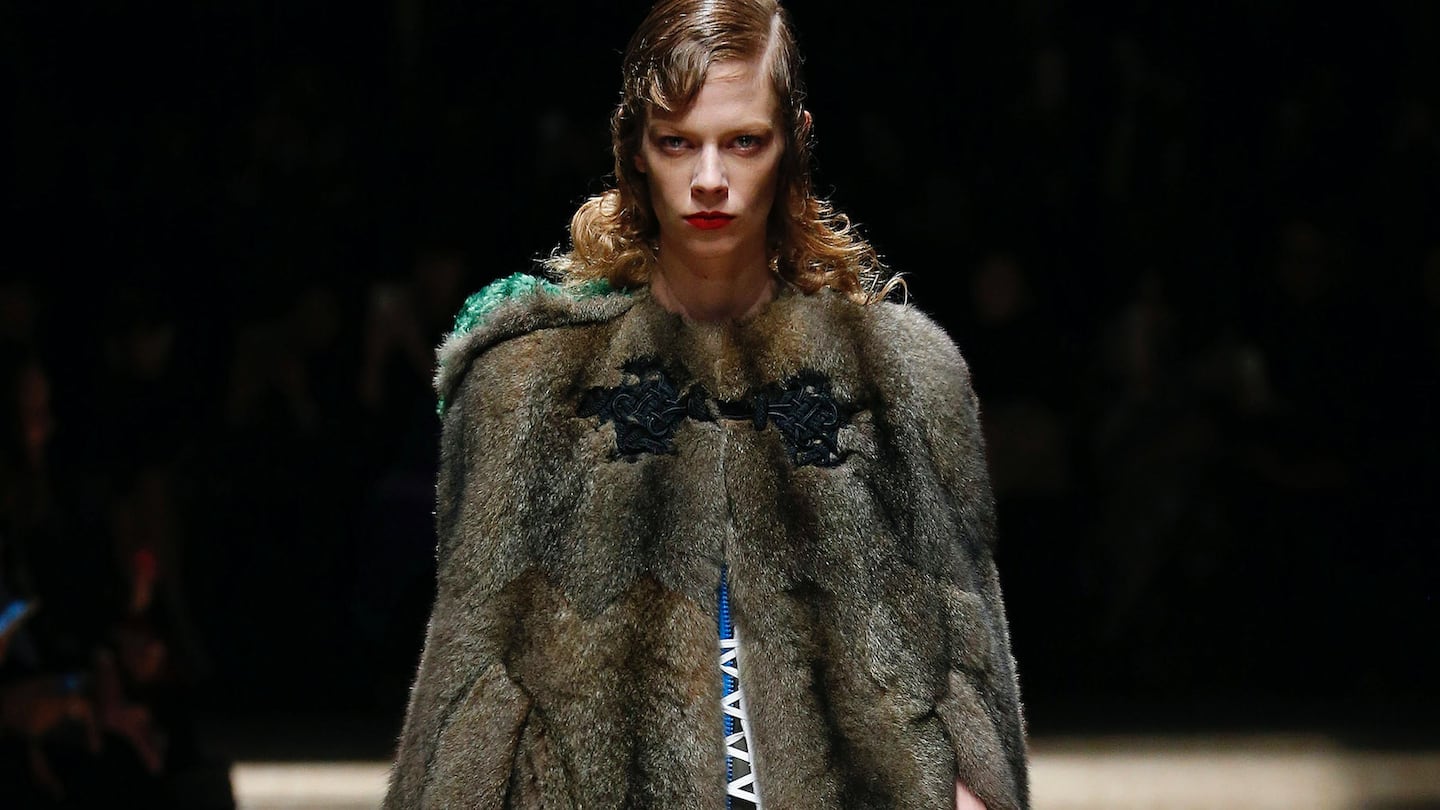
The Business of Fashion
Agenda-setting intelligence, analysis and advice for the global fashion community.

Agenda-setting intelligence, analysis and advice for the global fashion community.

MILAN, Italy — After months of pressure from animal-rights activists, Prada has joined fashion's fur-free movement.
The Italian luxury group, which owns Miu Miu, Church's and Car Shoe in addition to its flagship Prada brand, announced Wednesday that it would no longer use animal fur from Spring/Summer 2020 onward.
Prada joins a growing list of brands and retailers turning their backs on animal fur, including Gucci, Burberry and Versace. Cities are joining the movement too. In New York, the largest market for fur in the US, the city council is considering a ban on the sale of fur apparel. San Francisco and Los Angeles have already passed similar bans, coming into effect this year and in 2021, respectively.
The ban is a response to shifting consumer attitudes and low demand, said Lorenzo Bertelli, Prada Group's head of marketing and communications.
ADVERTISEMENT
“Fur has never been part of the main pieces of Prada,” he said, adding that the brand has already stopped showing animal fur on its catwalk. “People are always asking for a more sustainable approach from the company … [consumers are] different from the past. They think everybody needs to do their part to have a more sustainable world and future.”
https://www.instagram.com/p/BxxAcgLFcDx
Prada was targeted last fall by the Fur Free Alliance, an activist coalition made up of over 40 animal protection organisations including LAV and The Humane Society. Activists, including People for the Ethical Treatment of Animals (Peta) and Surge, have launched campaigns against a series of individual luxury brands and retailers in recent years, in addition to lobbying industry groups and government officials. Burberry, for example, was targeted during London Fashion Week in September 2017. One year later, the label announced it was dropping the product.
In September, Prada Group said it had received “thousands of emails” from activists, and released a statement emphasising that it had “not been displaying these products for some time, in order to discourage demand from consumers.”
The decision to completely end the use of fur followed behind-the-scene discussions with members of the Fur Free Alliance, Prada said.
Prada's decision will re-energise the movement to move away from fur for other brands.
Mark Oaten, chief executive of the International Fur Federation, said he was "extremely disappointed" at Prada's decision, adding that, despite requests, Prada declined to meet with the organisation to discuss the use of animal fur.
“I would have hoped a brand that cares about sustainability would have given it’s consumers the choice to buy natural fur rather than moving towards fake and plastic alternatives,” he said. “I don’t believe they have all the facts. I urge them to think again.”
The ban won’t have much impact on the Prada’s bottom line, as fur accounts for less than 0.1 percent of the materials currently used in production, but it will likely give the luxury brand a marketing boost.
ADVERTISEMENT
"At this point it's offsetting the small amount of profits that they get from the fur trade," said PJ Smith, fashion director at the Humane Society US.
Prada's commitment comes more than 18 months after Gucci first announced it was banning fur. Since then, over 10 brands and retailers have followed in Gucci's footsteps, including Farfetch, Michael Kors and Diane von Furstenberg, the latter of which also banned some other animal materials, including exotic skins, shearling, mohair and angora.
However, it has been months since the last major brand announced it was dropping fur. Jean Paul Gaultier announced it was banning the material last November. (Chanel and Victoria Beckham committed to dropping exotic skins in February.) Smith said that commitment from a big luxury player like Prada will help reignite momentum.
“[Prada’s decision] will re-energise the movement to move away from fur for other brands,” Smith said. “I think this will also help the discussions that are happening in California and New York.”
Related Articles:
[ Why Fashion’s Anti-Fur Movement Is WinningOpens in new window ]
[ Will Millennials Boost the Fur Trade?Opens in new window ]
From analysis of the global fashion and beauty industries to career and personal advice, BoF’s founder and CEO, Imran Amed, will be answering your questions on Sunday, February 18, 2024 during London Fashion Week.
The State of Fashion 2024 breaks down the 10 themes that will define the industry in the year ahead.
Imran Amed reviews the most important fashion stories of the year and shares his predictions on what this means for the industry in 2024.
After three days of inspiring talks, guests closed out BoF’s gathering for big thinkers with a black tie gala followed by an intimate performance from Rita Ora — guest starring Billy Porter.